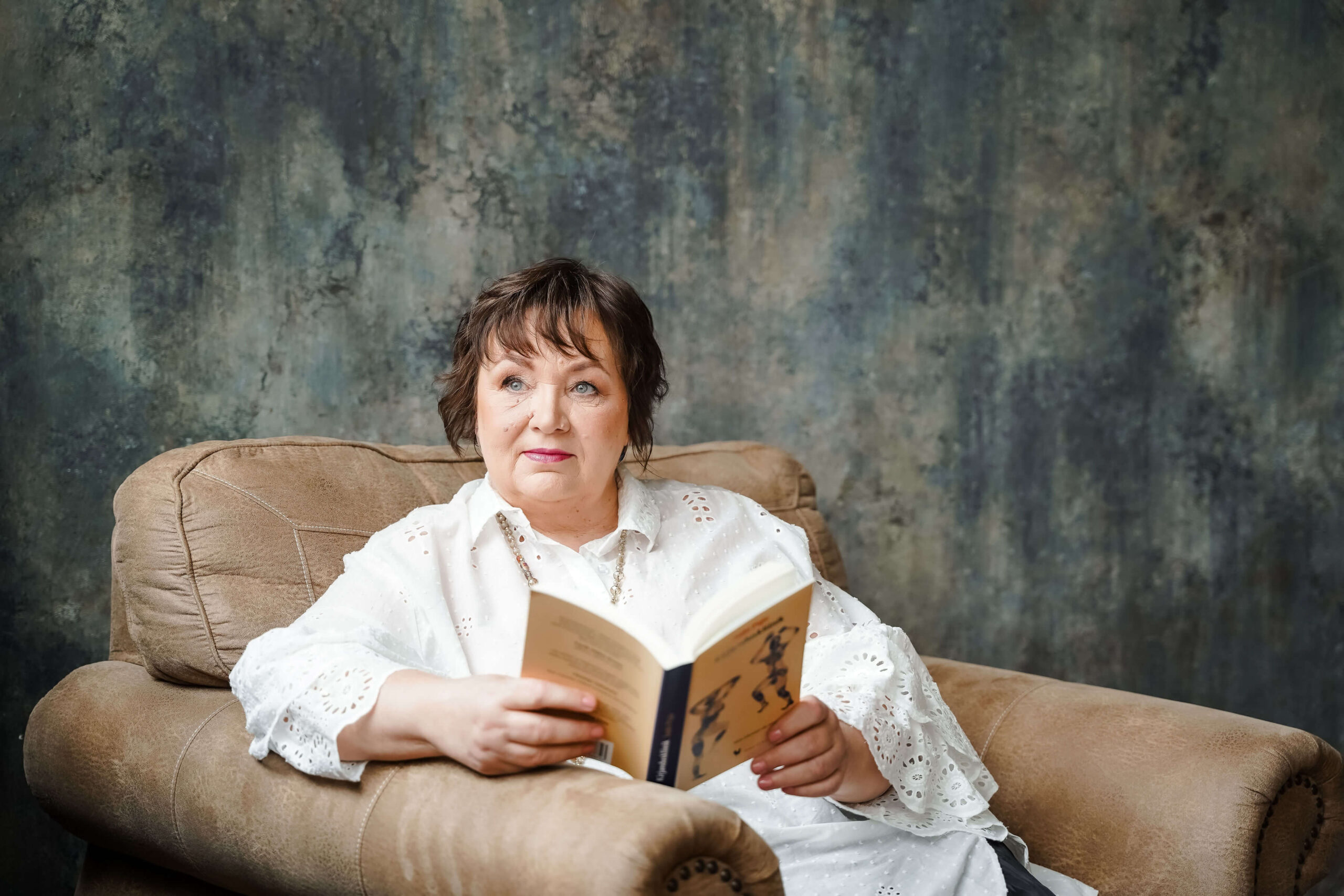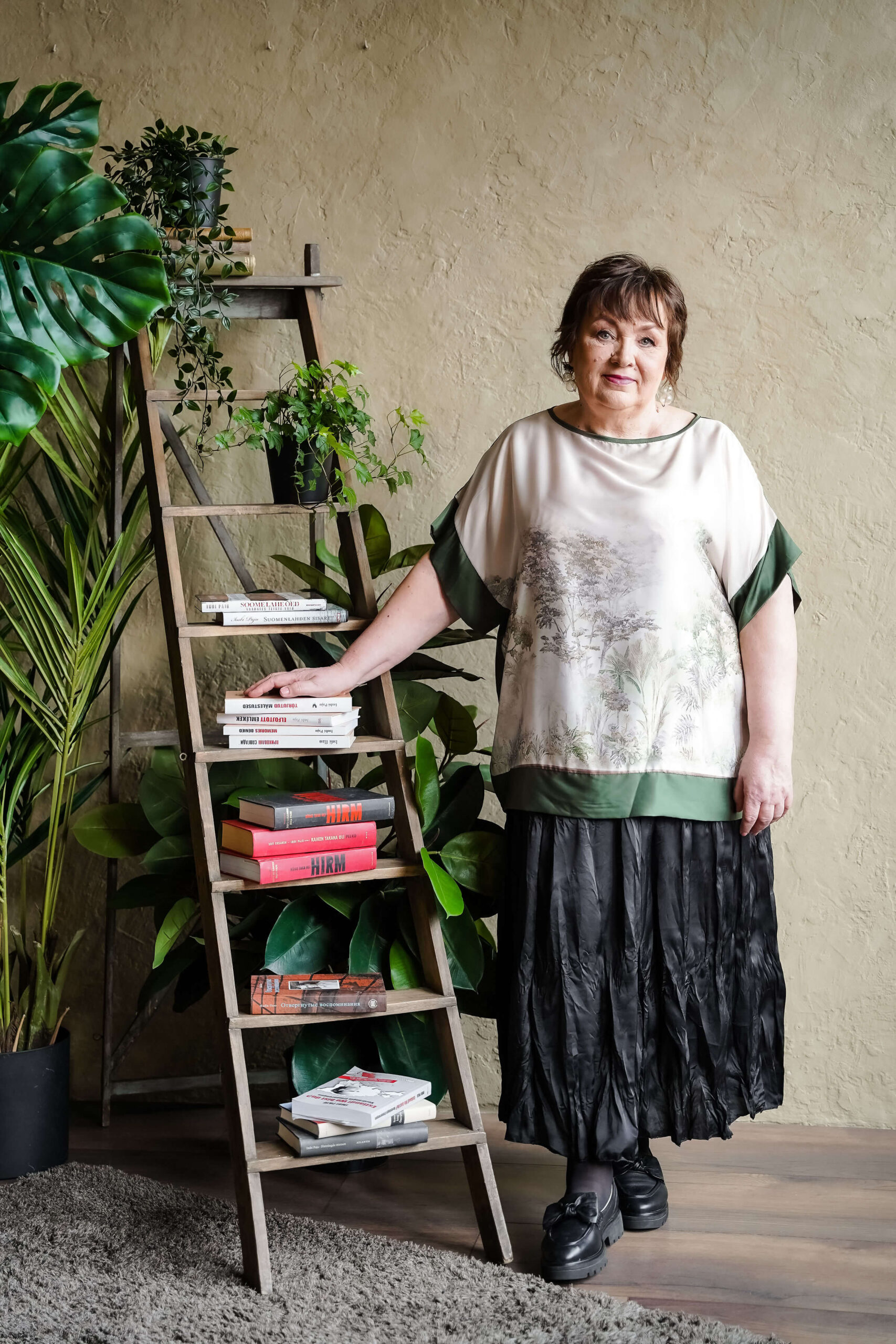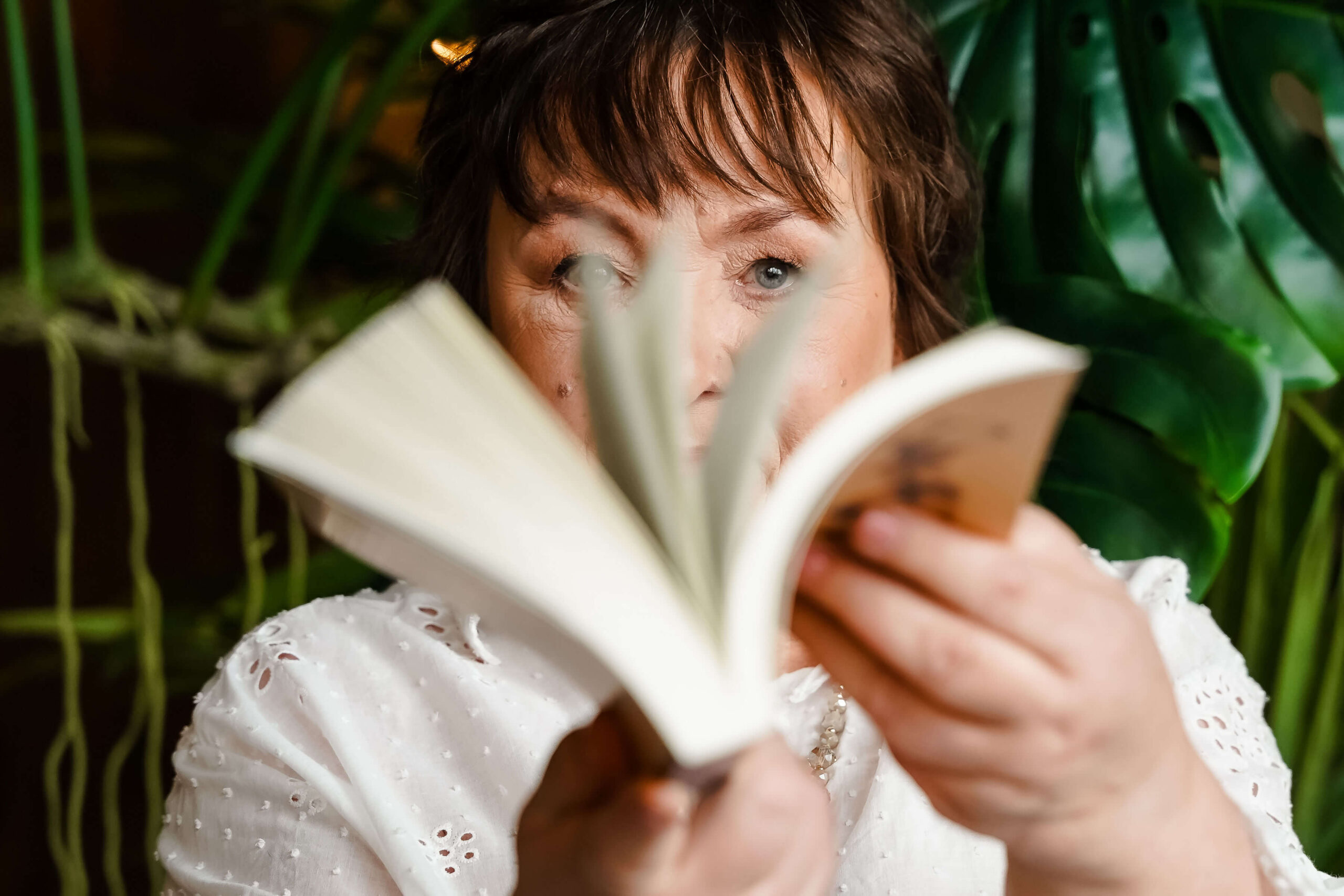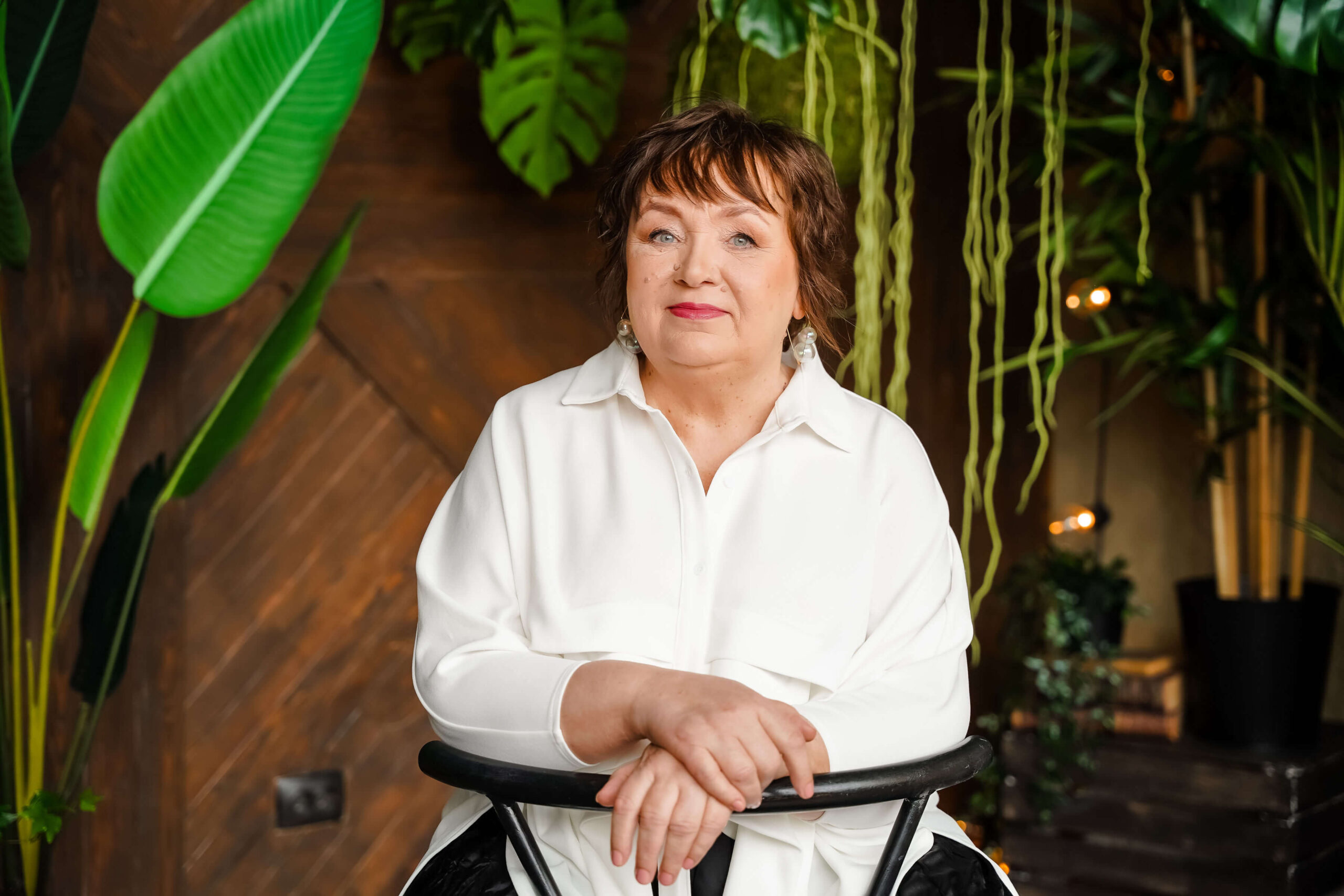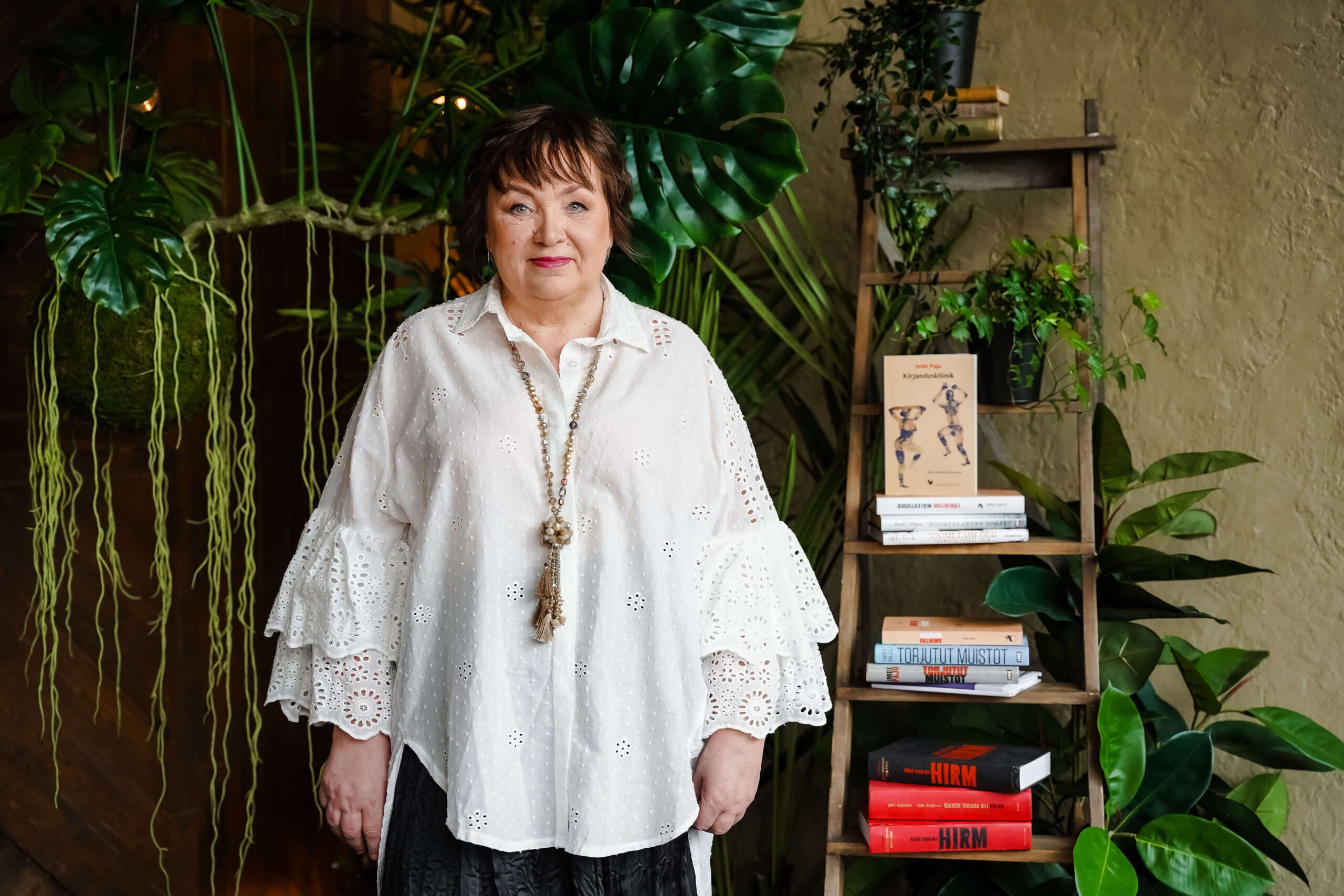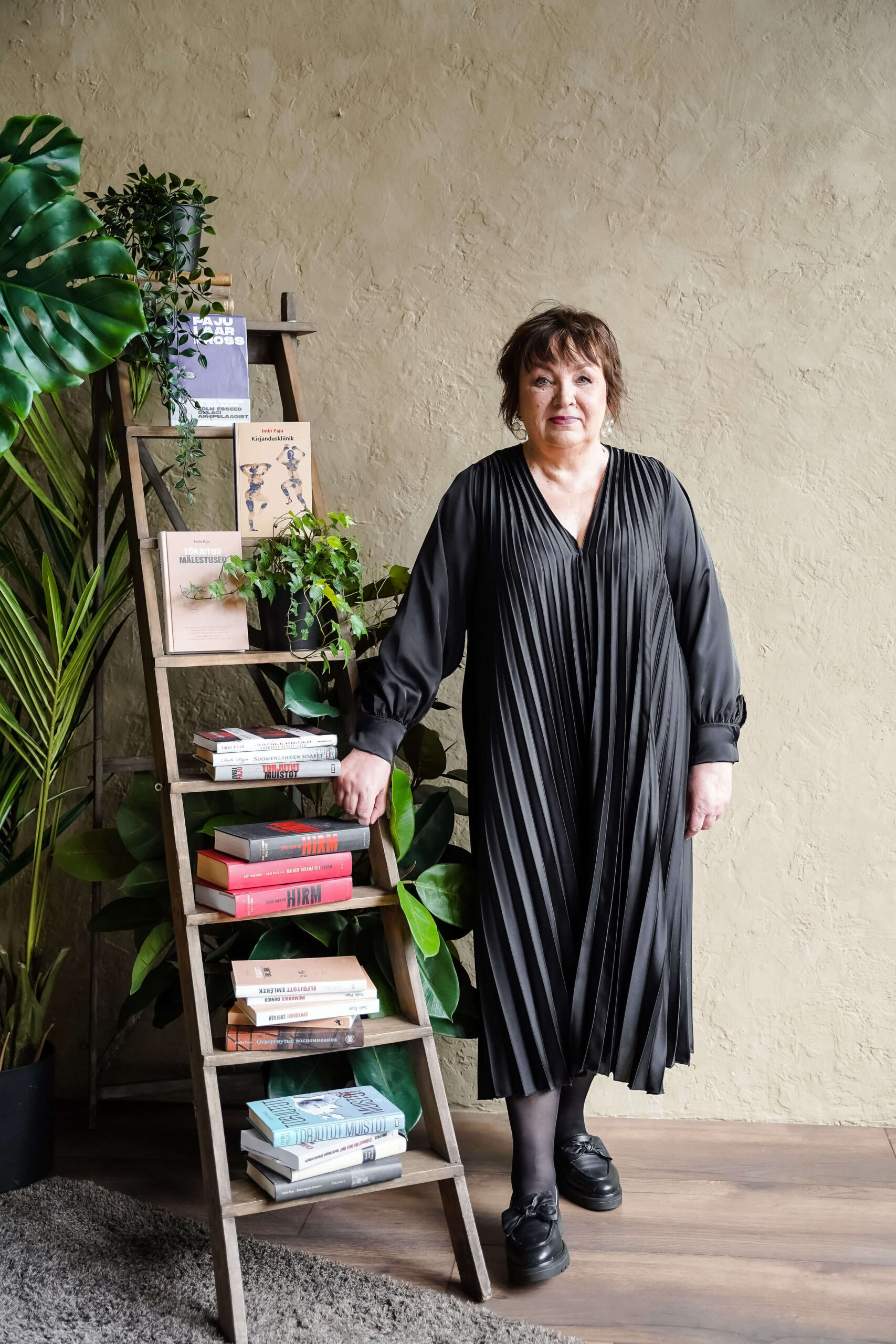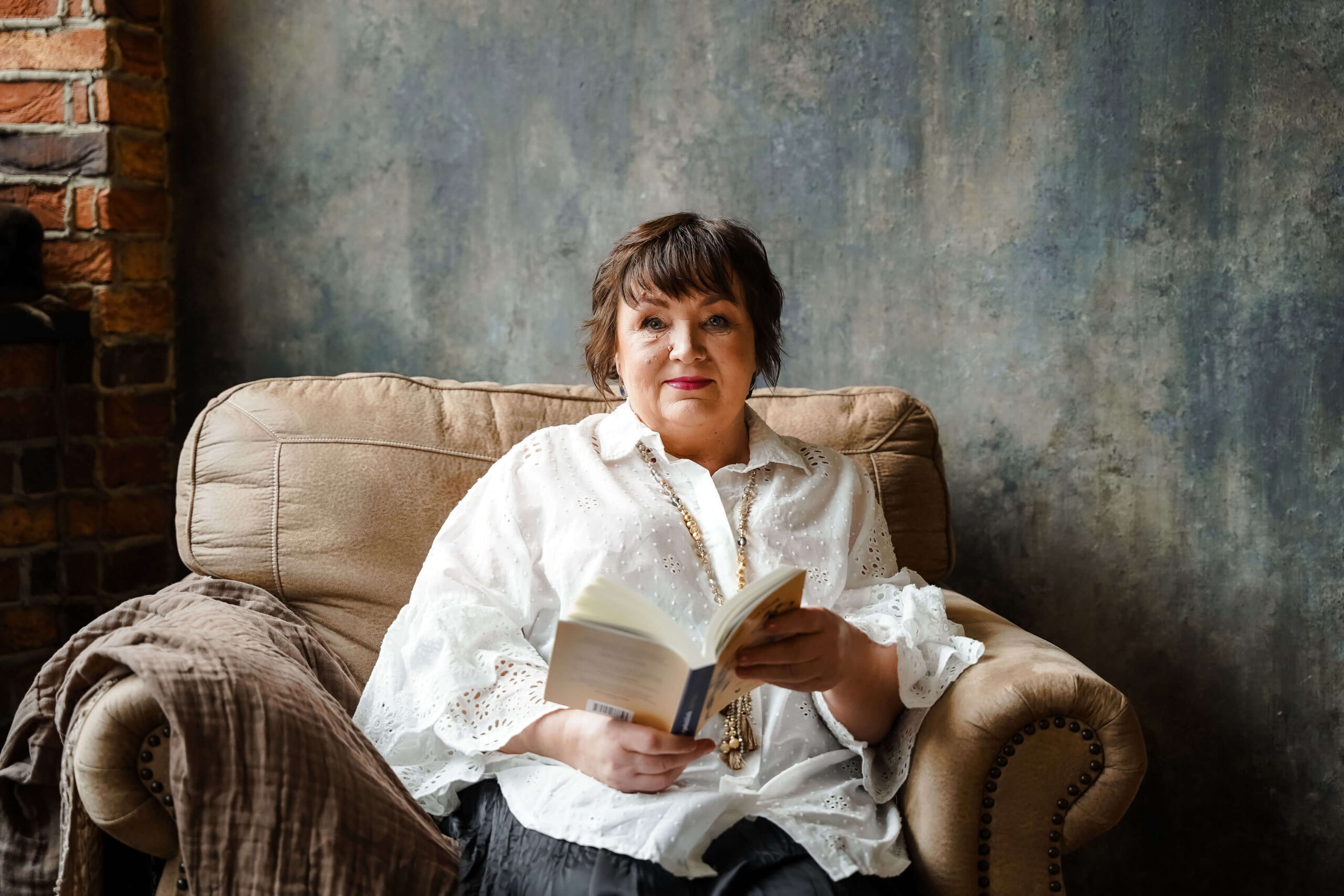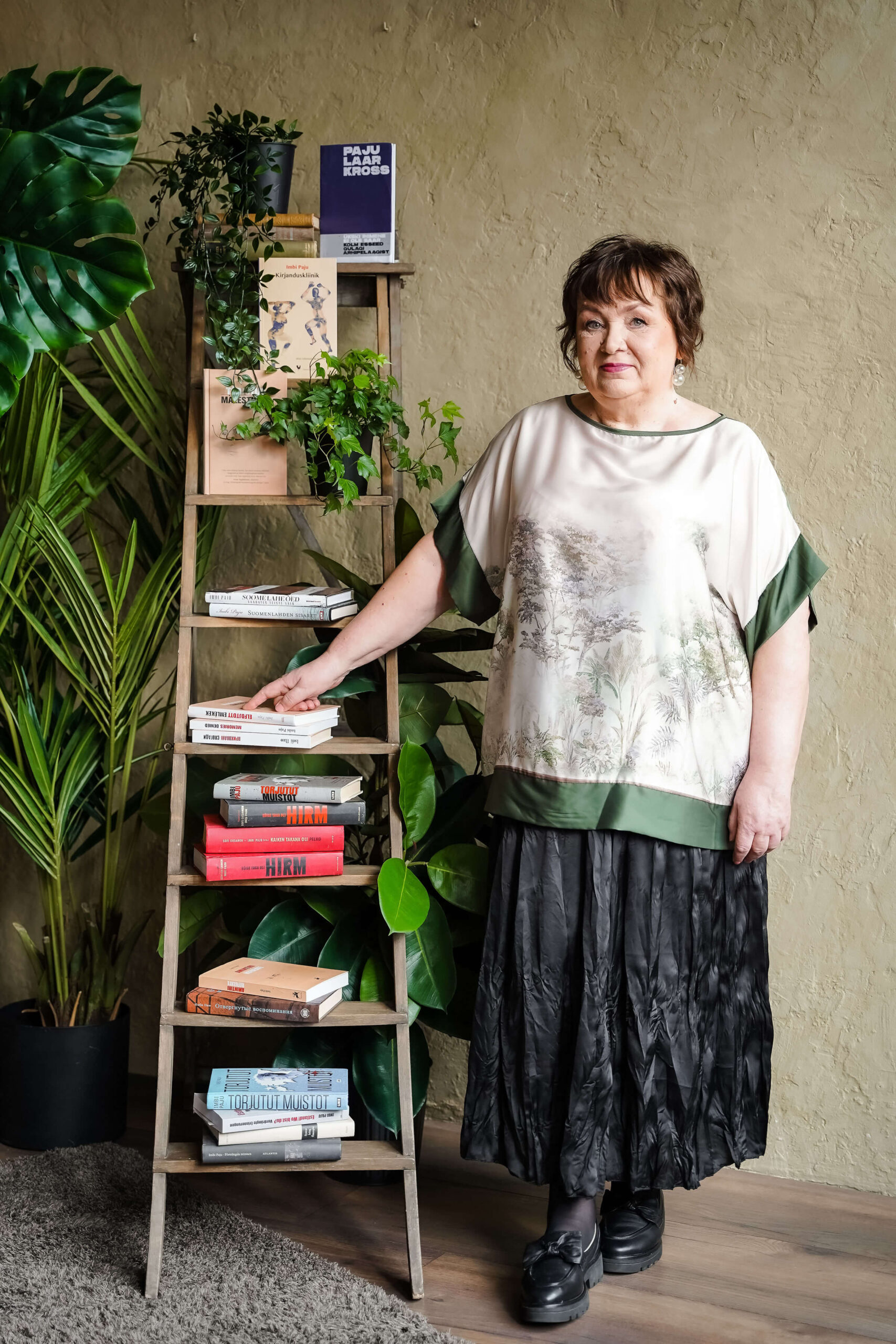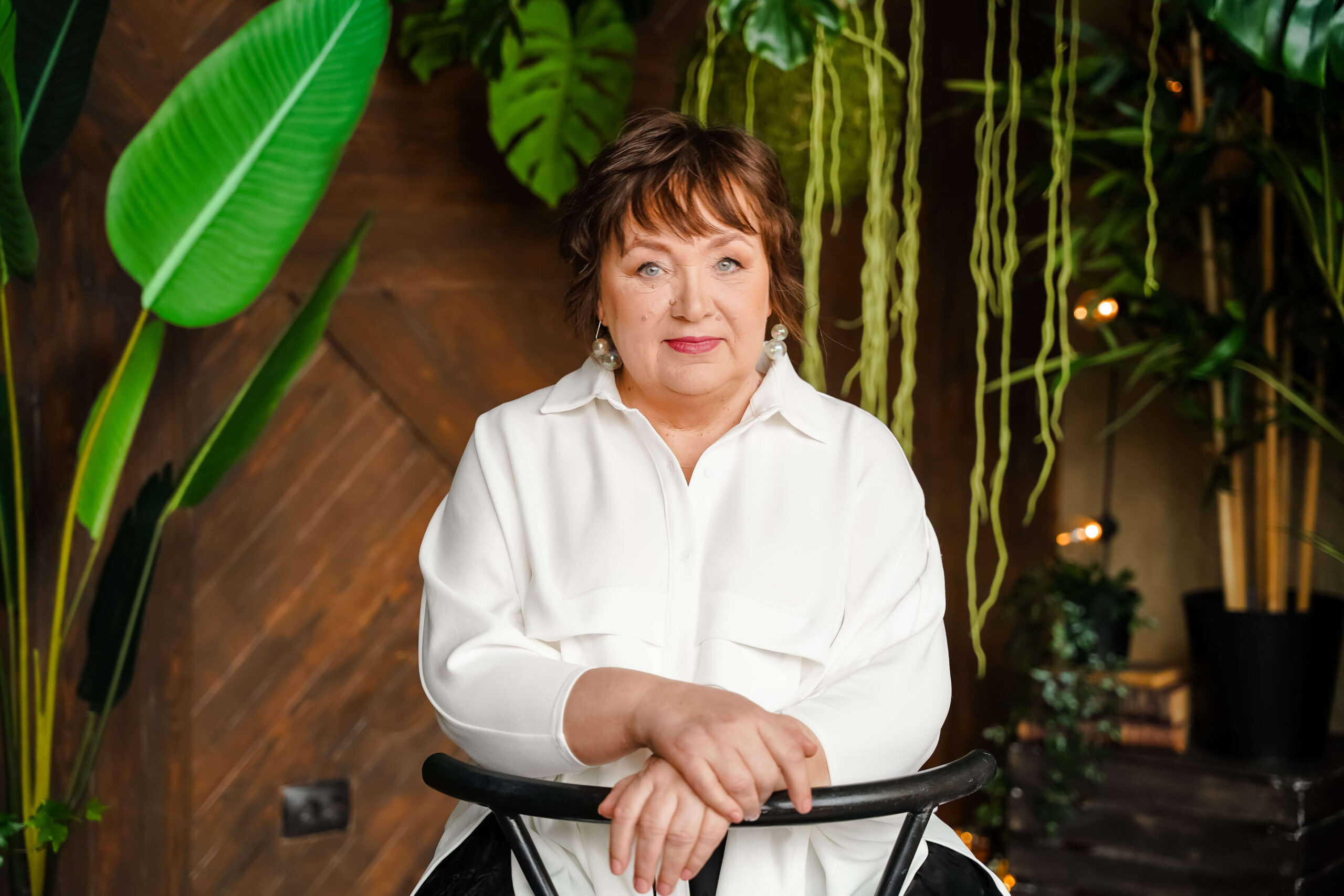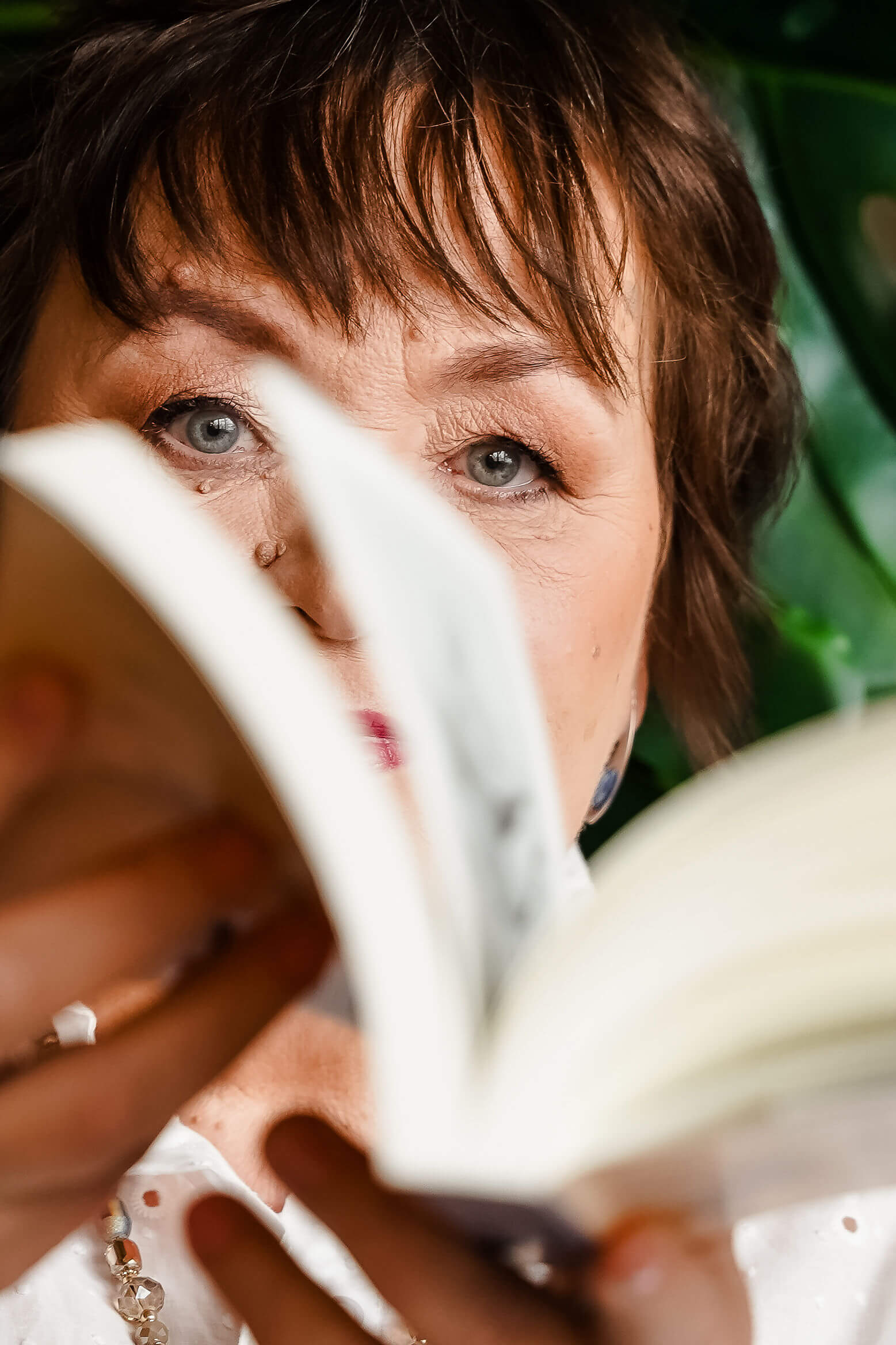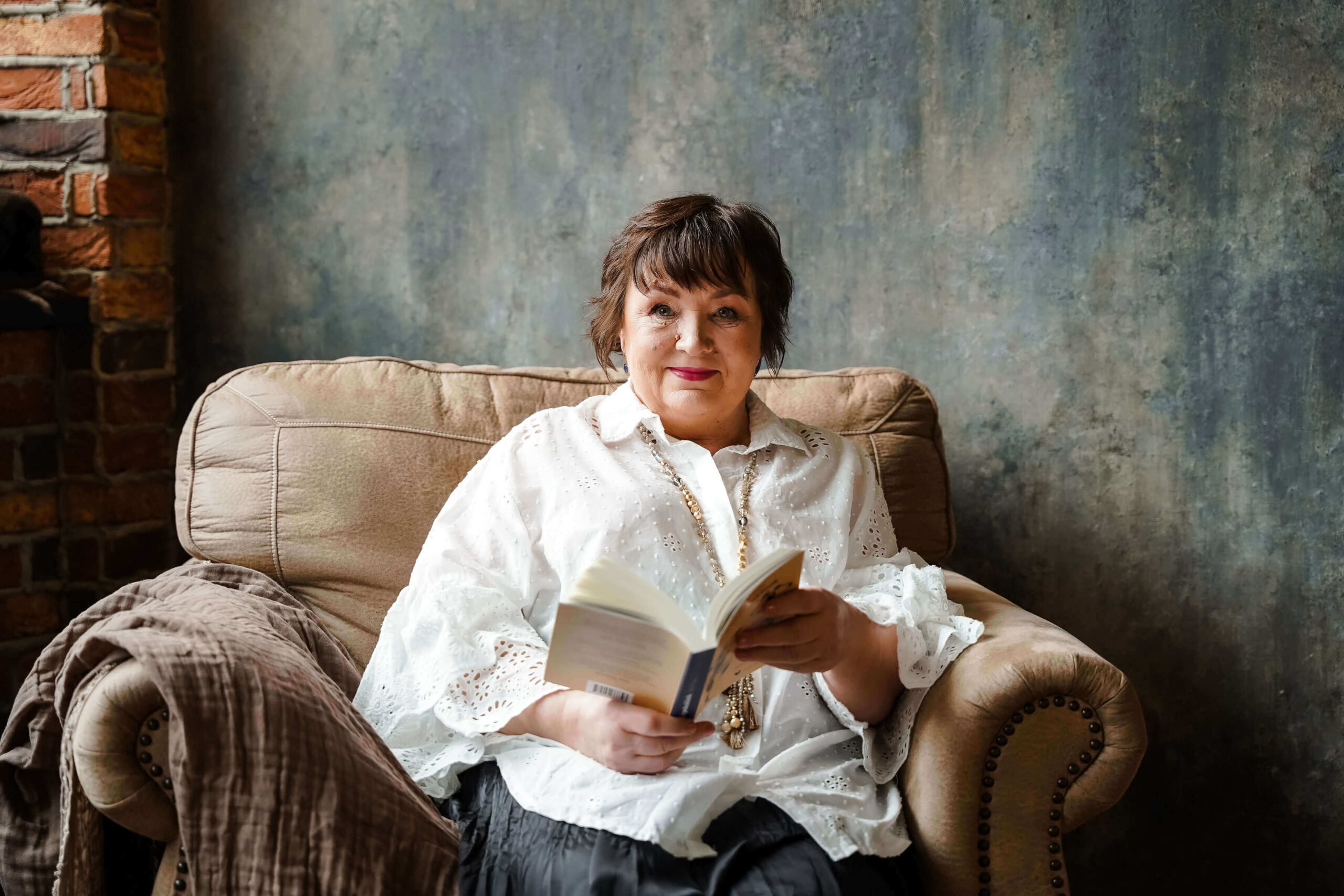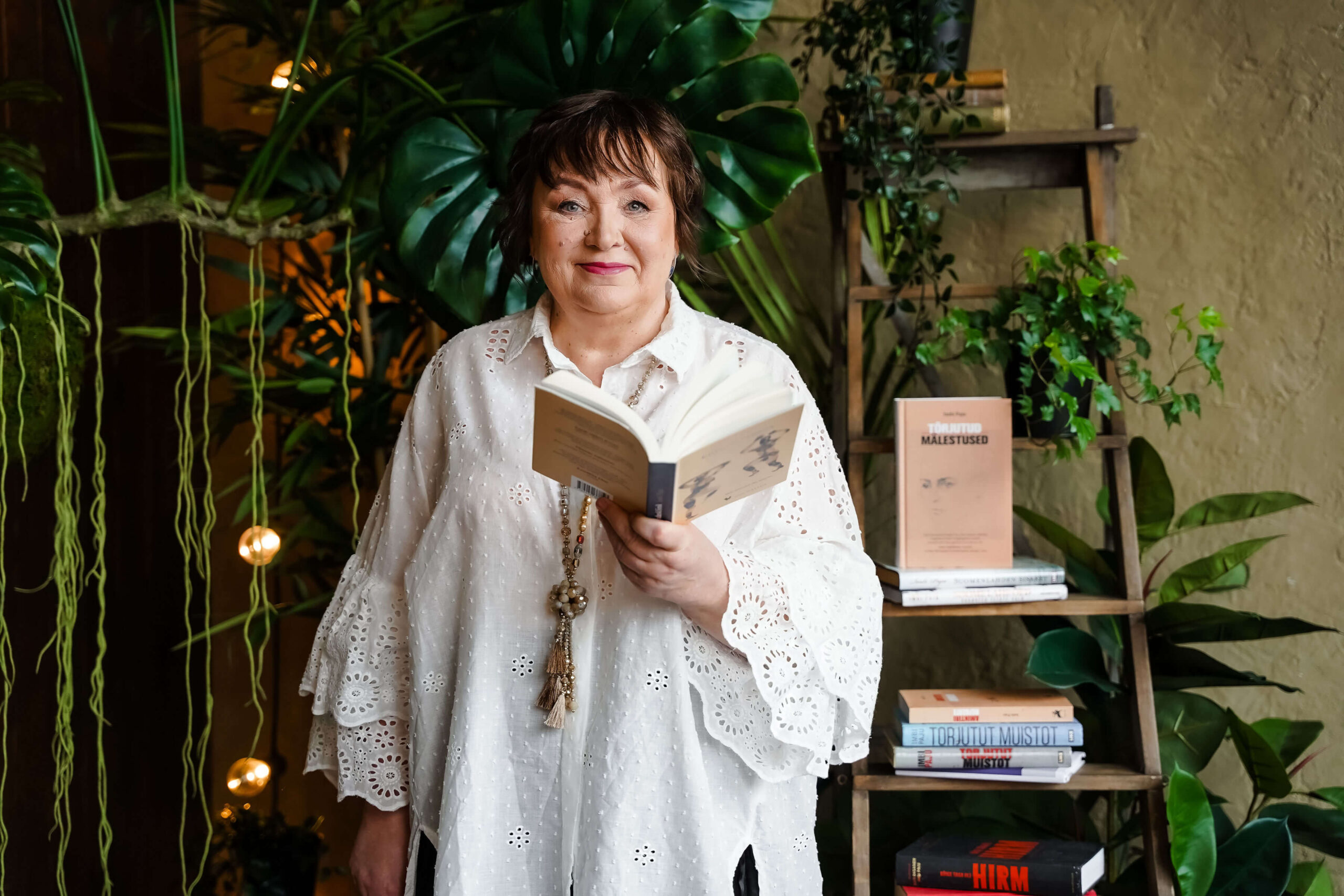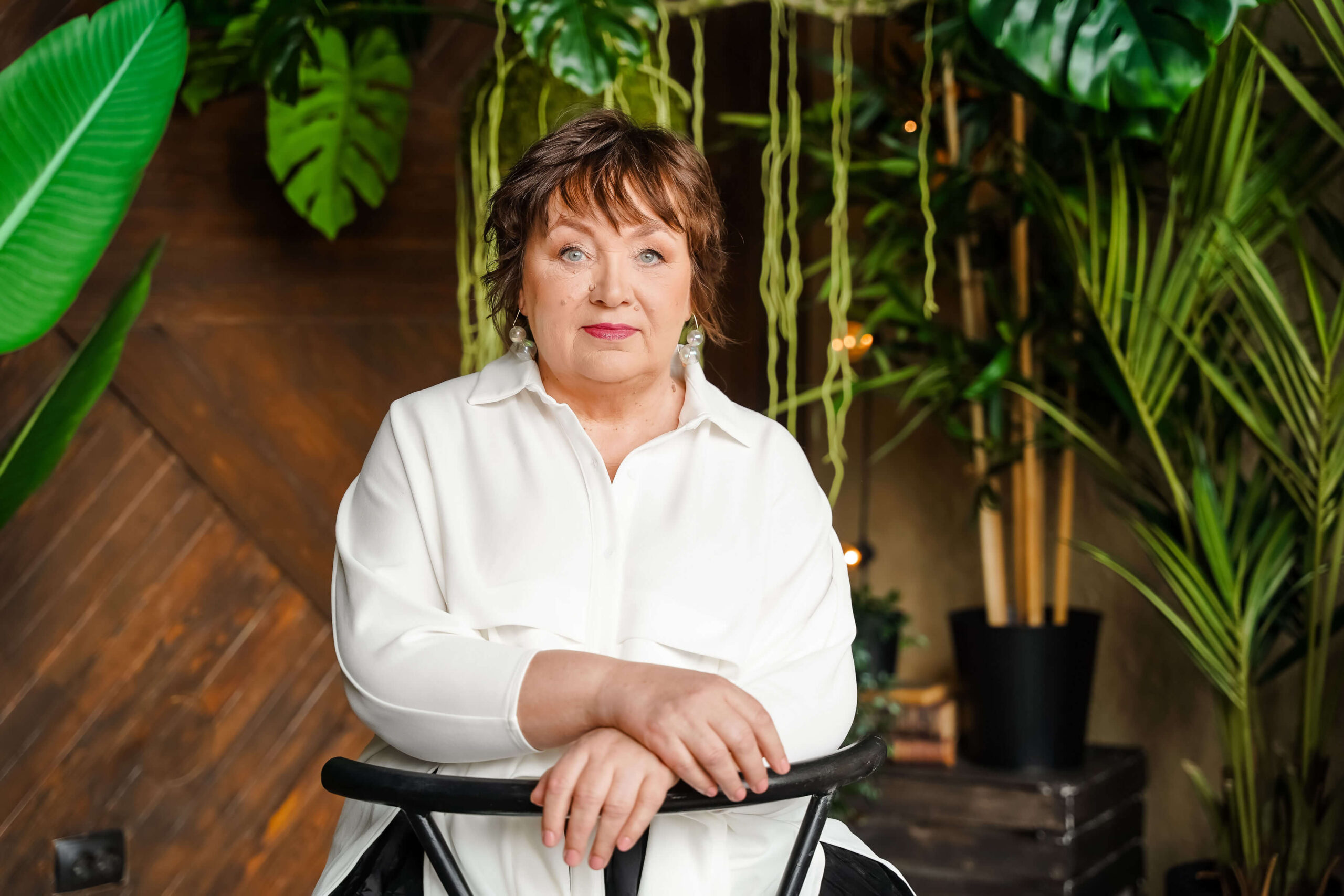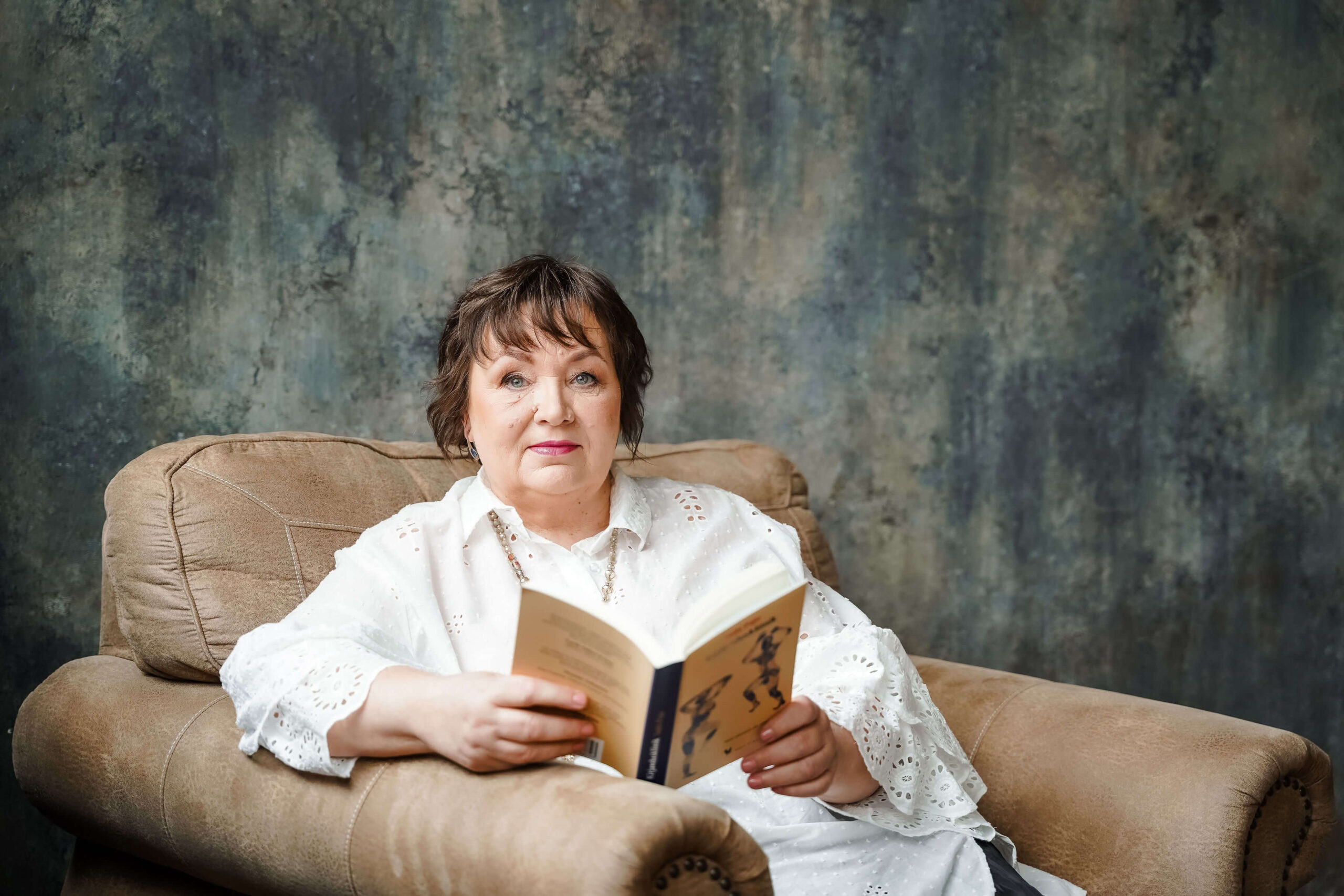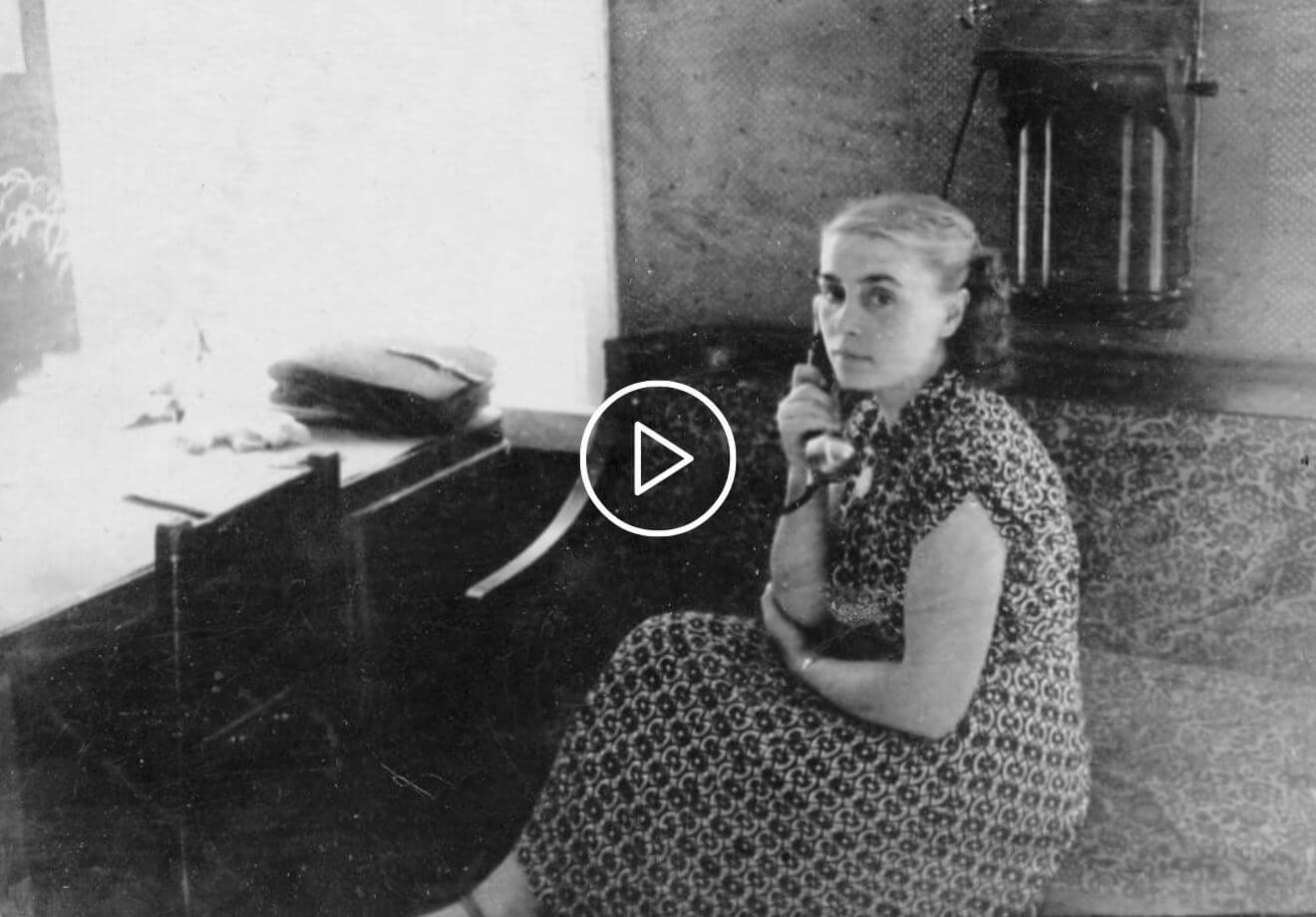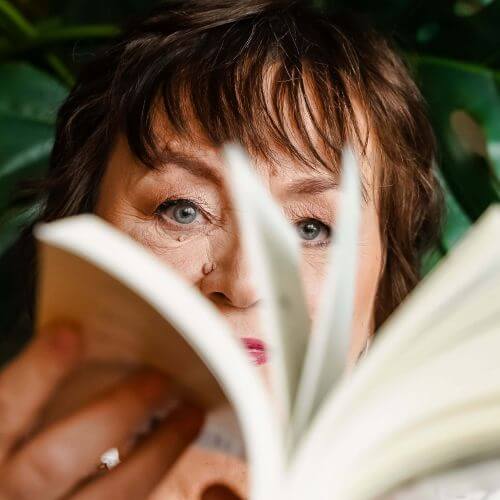Introduction
Who is [Imbi Paju] ?
Come join me on my creative journey!
-
The founding of the Võtikvere Book Village Literary Festival
The Võtikvere Book Village Literary Festival was established in Imbi Paju’s childhood cultural landscape. For 200 years, this has been an area of nature conservation and forestry. In order to not allow this area to be affected by new forestry reforms that favored industry, Imbi and fellow villagers laid the foundations for the first literary […]
-
The completion of the Finnish-Estonian documentary film Memories Denied
This psychohistorical documentary tells of Imbi Paju’s mother and aunt, the twin sisters Aino and Vaike, women who grew up under Stalinism, the Soviet occupation, and the terror of the Soviet regime.
-
Immersion in the twists and turns of human history and its impact on the international arena.
With her documentary film Memories Denied, Imbi Paju discovered that she has been immersed in the twists and turns of humanity. These have become part of her existence, involving her in international dialogue in Europe, North America, Taiwan, and Israel.
-
Taiwan International Documentary Film Festival
One of the most touching moments in Imbi Paju’s life was her appearance at the 2006 Taiwan Film Festival.
-
The book Memories Denied is published in Finnish
Following the great response by the Finnish public to the documentary film Memories Denied, Imbi Paju had the opportunity to expand her creative energies into the literary world.
-
The book Memories Denied became a bestseller
The book was published on the basis of an Estonian-language manuscript and translated by Kaisu Lahikainen. The book Memories Denied became a bestseller in Finland and has been reprinted several times, leaving its mark on the Finnish and Estonian cultural landscapes.
-
A Tour of the United States
Following the premiere of the documentary Memories Denied at the Woodrow Wilson International Center, a prestigious foreign policy think tank in Washington, D.C., and with the help of the Holocaust Museum in Washington, the tour took Imbi Paju to five locations in the state of Maryland
-
Participation in the Cinema and Psyche Seminar at the Orion Theatre in Helsinki
where the film Memories Denied was analyzed by psychoanalyst and writer Mikale Enckell.
-
The book Memories Denied is published in Swedish
Once Memories Denied was published in Swedish, it quickly gained recognition and popularity. At the Gothenburg Book Fair, her Estonian book was the best-selling book by an Estonian author.
-
The book Memories Denied was also published in Estonian
by the Estonian Encyclopaedia Publishing House
-
Award of the Jõgevamaa Silver Cross
For the establishment of the Võtikvere Book Village and the strengthening of civil society.
-
The Danish newspaper Politiken organized a seminar around the documentary film Memories Denied
Thanks to the support of this large and respected newspaper, it was not simply a seminar, it also served as a platform that opened doors to the past in order to reveal deeper truths and an understanding of the impact of the Soviet occupation period on the Estonian people.
-
History seminar focusing on Memories Denied
Trinity College Dublin, one of the oldest universities in Ireland, organized a Memories Denied-themed history conference. The film was also screened at the Europe House in Dublin.
-
Memories Denied is included in the Living History curriculum of Swedish schools
The Forum for Living History (FLH), the national agency for information on Nazi crimes, recommended that Swedish primary school pupils should learn about the history of Communism and Estonia by reading Imbi Paju’s Memories Denied and Anu Mai Kõll’s The Face of Communism (2005).
-
Stockholm’s Finland House hosts a seminar on Memories Denied
A seminar on Memories Denied was held at the Finland House in Stockholm with the support of the Estonian Embassy and the Nordic Council of Ministers.
-
A joint presentation with Sofi Oksanen at the Norwegian Literaturhuset
A presentation in Oslo, Norway, at the Oslo House of Literature. The Norwegian hosts wrote: “The painful truth about the Soviet colonial past is revealed through the work of Imbi Paju and Sofi Oksanen, revealing the dark shadows of occupation and the twists and turns of a sad fate.”
-
The Finnish-Estonian documentary film Sisters Across the Gulf of Finland is completed
This is a memoir of Estonian and Finnish women involved in home defense organizations before World War II. The film is accompanied by rare archival footage. It explores from a female perspective the vulnerability of the individuals and small states where political games are played between large totalitarian states.
-
A collection of articles entitled Fear Behind Us All was published
The collection Fear Behind Us All: How Estonia Lost Its History was published in Estonian and Finnish in cooperation with the Finnish-Estonian writer Sofi Oksanen.
-
The book Memories Denied is published in Russian
by the Estonian Encyclopaedia Publishing House, translation by Svetlana Karm.
-
The book Memories Denied is published in English
By Like, and translation by Tiina Ets.
-
Performances in connection with the film Sisters Across of the Gulf of Finland
Presentations of the film Sisters Across the Gulf of Finland with Elisabeth Rehn, the former Finnish Minister of Defence and UN High Commissioner for Human Rights, in Estonia, Finland, Sweden and Lithuania.
-
Film premiere and seminar in Athens
Together with Finnish history professor Tiina Kinnunen.
-
Presentation of the Russian-language version of Memories Denied
at the Europe House in Tallinn, Estonia. The presentation represented a therapeutic reflection on identity, and received a lot of attention. Presentations in many Russian-speaking schools followed.
-
The book Sisters Across of the Gulf of Finland: Looking at Each Other’s Pain was published
by Like in Finnish on the basis of an Estonian manuscript.
-
The Open Estonia Foundation Concord Award
Nominated for the Open Estonia Foundation Concord Award for the film and book Memories Denied because the works have contributed to the achievement of mutual understanding between different groups in society.
Imbi Paju is a multifaceted creator, writer, documentary filmmaker and essayist. Her books have been published in many languages.
She broke onto the international scene in 2005 with the premier of her documentary film Memories Denied. One year later saw the publication of the identically-titled book, an essayistic literary documentary work. Both the movie and the book took flight across the world, enlightening all about the realities in occupied Estonia and the crimes committed by one people against another, realities that had been shrouded by Soviet propaganda. Paju’s path within the cultural world began during the Soviet occupation in the university town of Tartu, where she studied classical singing. She sang in the Vanemuise Theater Opera Choir and later in the Estonian Radio Mixed Chorus. When Estonia embarked upon restoring its independence and revitalizing freedom of speech, she began studying at the Estonian School of Humanities, the first independent private university. She later continued her education at the University of Helsinki, where she studied the Finnish language, Social Studies and Gender Studies, which led her to probe more deeply into psychoanalysis, literature, art history and history, finding new perspectives and kindred spirits to help her render meaning to life. Now she was embarking on a voyage of self-discovery.
Gender Studies were particularly crucial for her, since this helped her, as someone emerging from a totalitarian system, look into herself and her gender with new vision and perspective, something that had not been possible in Soviet-occupied Estonia. She also furthered her studies at the Swedish-language Svenska Österbottens Folkakademi, where she studied Art, Filmmaking and the Swedish language.
As a columnist, she contributed to Estonian and Finnish newspapers as well as providing news from the Baltic States to the Finnish television station TV4.
It was precisely during her movements between these two countries that her first documentary film as well as her books came into being, first being published as Finnish-language translations of her Estonian manuscripts. It was during collaboration with a Finnish publisher that she acquired her first valuable experience regarding a writer’s path to the reader. Imbi Paju is a seeker of truth – she believes that freedom should be unceasingly reflected upon, recreated and nurtured through dialog and stories.
In 2020, her book Memories Denied, which has been published in 9 languages, was designated a contemporary literary classic by the Like publishing house and bookstores in Finland because the book “provides lessons of discovery of humanity, the fate of a single small person amid the twists and turns of history, as well as serving as an important resurrection of the past and a mirror of the present.”
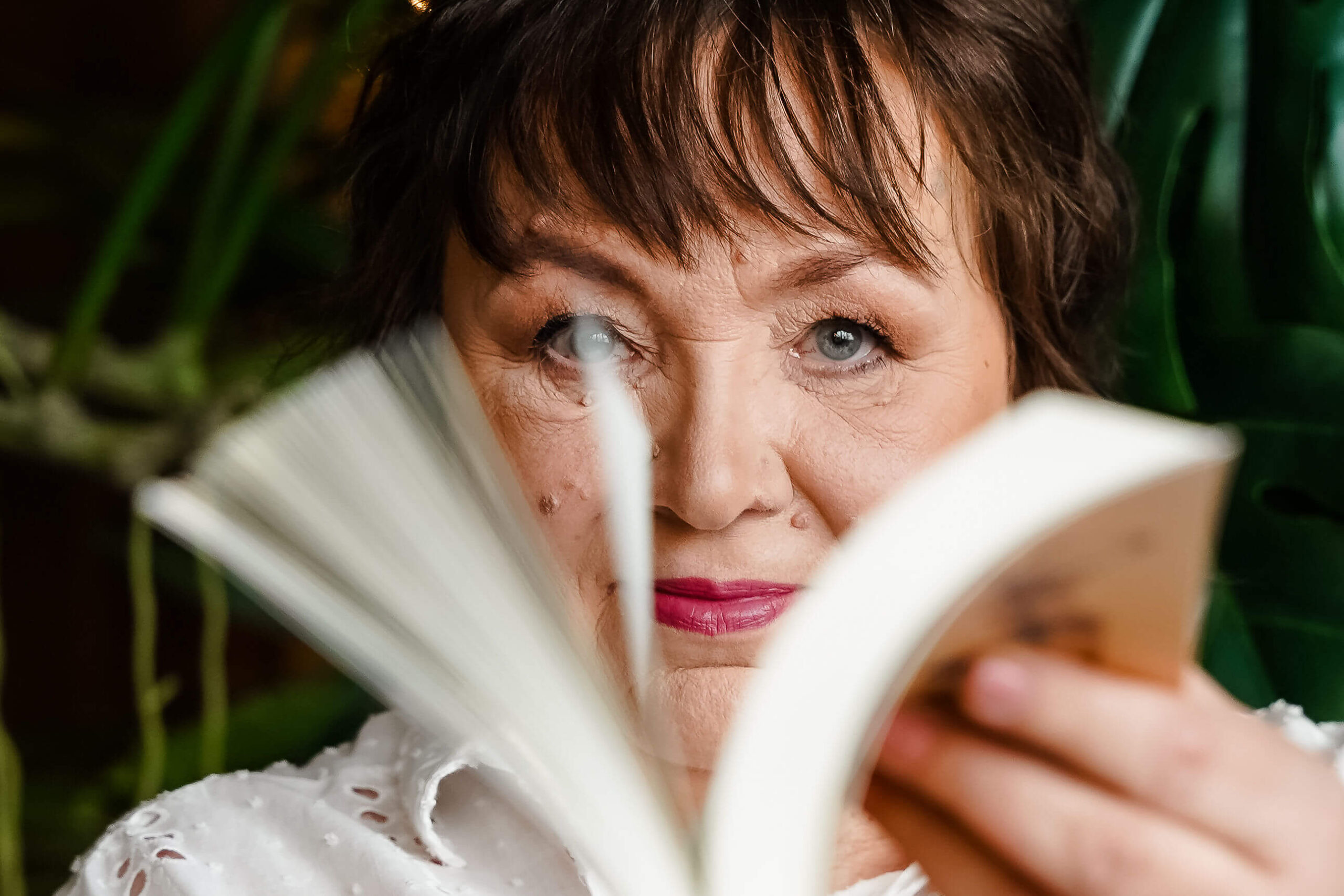
Imbi Paju. Photo: GoodNews, Evelin Kruus
In the author’s own voice:
Instead of sharing a traditional curriculum vitae with those who have found their way to my homepage and my creative works, I choose to share a more personal and candid story of myself.
It is my belief that sharing forges the bonds and develops the trust that unifies us as human beings, particularly in the current geopolitical times that are so rife with uncertainty. Each shared story contains a fragment of history and spirit from which we draw the strength and knowledge to live and discover the path that will carry us onward. Every person’s life is worthy of its own novel.
Twenty years have passed since the publication of “Memories Denied” (reprint: Gallus 2019). All my other works are listed here on my homepage. They are all part of my path; they are my lessons and my companions. In 2023, I completed a collection of essays entitled “Literary Clinic: What It Means to Be Human” (Gallus 2023). I worked on it during and after COVID, finally recognizing that my work was ripe for sharing with my readers.
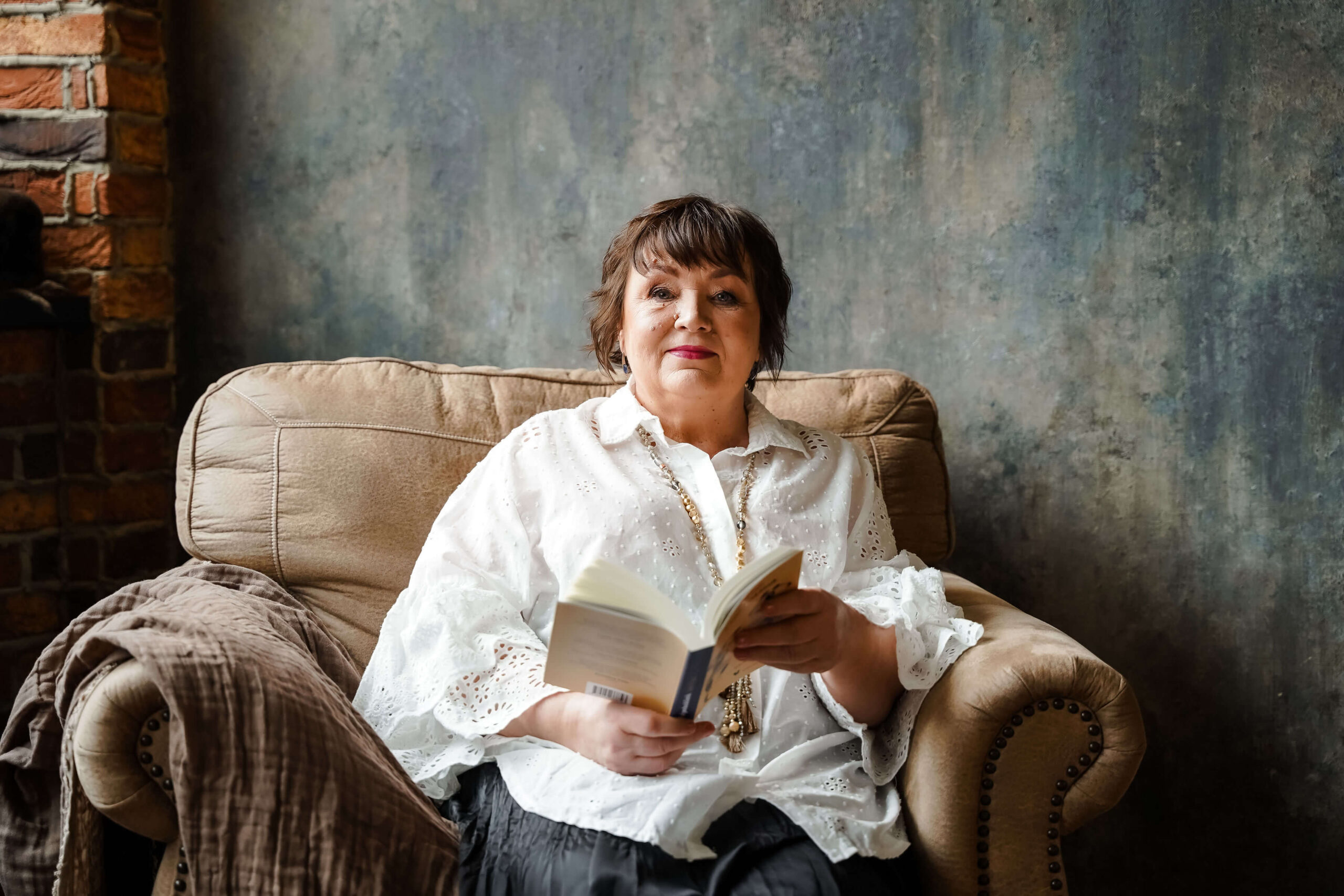
Imbi Paju. Photo: GoodNews, Evelin Kruus
After that, amid clouds of worry arising from the climate crisis, I completed my first book meant for children and families: “The Gardener of Kadriorg” (Postimees Publishing 2024), illustrated by Liina Maadla. I enjoyed my cooperation with the artist, the designer, the editors, and the publisher. Our cultural space, our Estonian traditions and patterns of life, are vessels that lovingly hold the green wisdom passed down by our ancestors.
The book’s young language editor exclaimed: “Everything in the book is present here and now in our own nature, our own gardens, in real places in Estonia.” Her enthusiastic words of recognition are now preserved on the back cover of my book.
Nature is deeply ingrained in my existence. I was born in 1959 and grew up in the village of Võtikvere, nestled among woodlands, adorned by old manor trees as well as well-tended forests with an abundant variety of flora. People kept lovely gardens that provided therapy and comfort; because we lived under foreign oppression, talking about their grief and their feelings was difficult and even dangerous. In my home village, woodland renewal and nature conservation have been practiced for 200 years. My father was a forest warden. This way of life, this environment, as well as all the stories I have heard, are reflected in my children’s book. It was like living in a state within a state; the villagers worked for the forestry agency; renewing the forest and preserving nature were central to our daily lives. Reading and cultural pursuits were held in high regard. Some old people wrote poetry; I listened to their stories of our independence-era reading and writing workshops. Through these stories, I wanted to catch a glimpse into the time when Estonia was still independent, the Estonia into which my parents were born. Historians have since revealed that the foreign regime destroyed 30 million books upon their invasion of Estonia – poetry and prose, philosophy, intellectual literature, books on psychology, children’s literature – seeking to eradicate all that is inherent in Western culture. The foreign regime replaced such works with ideology, thus creating the need for two-facedness if one was to survive under such a system. However, the stories told by the older generation proved more powerful than this torrent of destruction. To my surprise, I realized that even some people in the Free World believed in ideologies that the Soviet Union had so masterfully disseminated. This drove me to become a writer while I was in Finland. I agree with author Margaret Atwood: if you are a writer, it is crucial to ask whether something is true and just, and not to choose sides. Now, as if being drawn into the spirit of the current era, I find myself worrying about the conflicting ideologies that are emerging to stifle intellectual and existential discourse.
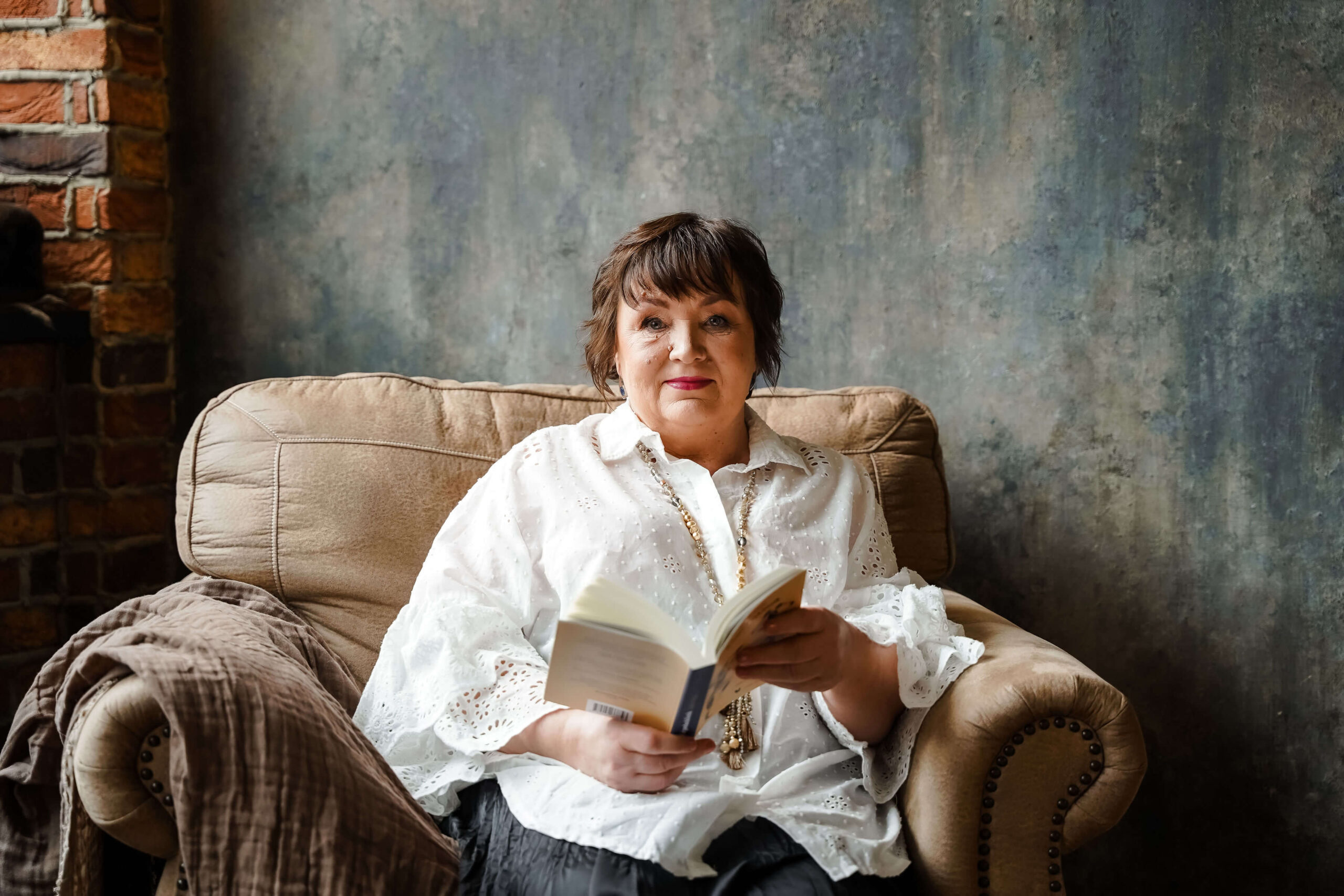
Imbi Paju. Photo: GoodNews, Evelin Kruus
It is my background of rearranging the world, of learning and discovering new things, that has made me into a writer and gives me the strength to continue writing. When Estonia was on the threshold of regaining its independence, I abandoned my singing and began making documentaries and writing, although these processes were time-consuming. Then, my world opened up and suddenly broadened into Europe, Asia, North America, Israel, Ukraine, and elsewhere. In 2009, the publication of the book “Fear Behind Us All: How Estonia Lost Its History,” written by myself and author Sofi Oksanen in Helsinki, kindled an information war. This war had already started some time earlier, and we recognized that the assertions running rampant throughout Finnish society – Estonia is not a real country, all the stories about independence are myths – arose from ignorance. People were unaware of and unfamiliar with Estonia’s story because Estonia had languished behind the Iron Curtain for half a century. Compiling the book was a pleasure, but its end result was the outbreak of an information war. Even simply talking about these events was difficult for me until spring of 2024, when Sofi Oksanen’s new book “Same River, Twice: Putin’s War on Women” hit the shelves in Estonian. In her book, the author has recorded all that had happened during this time, expressing amazement at how such a smear campaign was even possible in a democracy. All this time I had been feeling that I had lost myself, not realizing that I had actually opened the door for my own stories. They were stories forbidden under the foreign regime, stories in which human life was vulnerable and endangered, left without solace. I was on the threshold of post-traumatic stress, which I now began to study. I soon recognized that I can not change anyone else; I must instead delve into myself and my own way of thinking. This is true in any situation.
I learned new things, presented my films and books throughout the world, organized creative writing workshops in Estonia and Finland, and later discovered coaching for myself. Leaving stress behind requires working with oneself, one’s thought patterns, feelings and actions. This self-reprogramming is like giving birth – your old world dissolves, with new contractions helping you to emerge into new circumstances, into a new, more fully developed and warmer world. Today, this is the experience from which I am drawing wisdom for the historical novel I am in the process of writing. The more I write, the better my vision and cognition become. I enjoy the process of learning, both as a person as well as a writer. This process always includes the joy of discovery, even through aggravation. I do not know of a single life story that is free of conflicts and challenges, free of the pain of loss. All this is part of becoming human, a part of life’s journey. Every discovery along this path is a rebirth.
In 2024, I accepted the challenge to write three essays about the Gulag Archipelago together with the former prime minister, good kindred spirit and writer Mart Laar, and another good friend, historian and politician Eerik-Niiles Kross. The book, entitled “No Man Is An Island: Three Essays on the Gulag Archipelago,” borrows its title from the conception of English classicist John Donne, one that resonates with the universally human message of “Gulag Archipelago” by Aleksandr Solzhenitsyn, winner of the Nobel Prize in Literature.
Every human being is valuable; the brutal death of any person, the destruction of their creative works, represents a loss to all humankind.
Five decades have passed since the publication“Gulag Archipelago” in Europe. However, very few know that Aleksandr Solzhenitsyn, under persecution by the hostile KGB, completed this classic work in occupied Estonia. It was with the help of his Estonian friend Arnold Susi and other intellectuals that the writer found a hideout where he could safely write.
In current times, the suffering of Ukraine reminds us of this every day.
As a writer, I am fascinated by the guiding archetypes and beliefs that are programmed into our civilization. Therefore as I write, I ask myself: can I transform my insight into an artistic work, a novel, an essay, a short story. We can shield ourselves from hardships if we dare to discuss, dare to share. Here I want to share the final statement of Nobel Prize winner Imre Kertész at the Nobel banquet in Stockholm in 2002, where he finished his speech by exclaiming: “Die Liebe!” (“Love!”). Indeed, love lays the foundation for all actions and is the guardian of all life. The author, who had spent time in a Nazi concentration camp, manifests this truth, a truth that has also been affirmed by my grandmother and my relatives who survived Siberia or the Gulag. This is not something esoteric; it is the cornerstone for everything. I am grateful that Mikael Enckel, the Finnish-Swedish psychoanalyst and writer, analyzed our works simultaneously; I feel as if it gives me the permission to repeat the final, most important word of the Nobel Prize winner’s speech – “love” – because love is what transforms our life into an artistic work, despite everything.
For me, the journey I am sharing here is like the beautiful sandy path of my childhood, a path that remained unchanged through the seasons, carried me to my destination, lined with trees and flowers.

Imbi Paju. Photo: GoodNews, Evelin Kruus
Stories emerge before us like memorial stones that invite us to notice them. They materialize in our lives at new points in our life experience and guide us toward a more well-balanced life. We are fortunate indeed if we achieve balance. At this time, my greatest privilege is the freedom to write. I consider myself a post-colonial writer, because I was born in 1959 in Soviet-occupied Estonia, which now belongs to the community of Scandinavia and the Baltic States. I like the notion that Europe ends here, because the oldest monument in the world dedicated to Europe’s great poet Friedrich Schiller stands on the Puhtu Peninsula in western Estonia. And yet, here in Estonia, we are all neighbors of Russia, as if standing guard at the border of freedom and democracy. We represent speakers of but a small language, and it is a great privilege and good fortune to be recognized as a piece of the puzzle that is the great world of literature. Estonia is a borderland of Europe as well as its heartbeat.
Welcome to my world, the world of a writer, where sharing and understanding give birth to stories that in turn give birth to new stories.
Comments by others about Imbi Paju’s Memories Denied

Anne Applebaum
author of Gulag: A History (2003), on the Soviet prison camp system, which won the 2004 Pulitzer Prize for Non-Fiction.
“By describing the fate of her mother – arrested, imprisoned, deported to the Gulag as a young woman – Imbi Paju has, in effect, told the story of an entire nation. Widely admired in her native Estonia and elsewhere, Memories Denied could bring that country’s history alive for many others too.”

Edward Lucas
author of The New Cold War (2008)
"Imbi Paju’s book opens doors into dark rooms. Let them flood with sunlight. And let others follow the same example."
Documentary film
Memories Denied
On November 1, 2005
the historical-psychological documentary film "Repressed Memories" premiered.
Works
2005
Documentary film Tõrjutud mälestused (Memories Denied) (YLE, Fantasiafilmi, Allfilm, Eesti Televisioon)
2007
Tõrjutud mälestused (Memories Denied), Eesti Entsüklopeediakirjastus 2007, ISBN 9789985702789 (published in Estonian, Finnish, Swedish, German, English, Russian, Ukrainian, Hungarian and Romanian), Tõrjutud mälestused (Memories Denied) (Gallus Publishing 2019) reissue
2008
Our Voice and Identity Under the Northern Star in the collection of articles entitled Uued mütoloogiad. Tänase Eesti enesekuvand ja koht Euroopas (New Mythologies. Estonia’s Self-Image and Place in Europe) (ed. Martin Kala)
2008
Imbi Paju’s foreword to the book Eestlased ja juudid (Estonians and Jews). Elhonen Saks 2008
2008
Documentary film Soome lahe õed (Sisters Across the Gulf of Finland) (YLE, FST, Allfilm, Filmmagica and Eesti Televisioon)
2009
Kaiken takana oli pelko. Kuinka Viro menetti historiansa ja kuinka se saadaan takaisin (Fear Behind Us All: How Estonia Lost Its History) (compiled together with Sofi Oksanen), WSOY, Helsingi 2009, ISBN 978-951-0-35111-6
2009
Documentary film Soome lahe õed (Sisters Across the Gulf of Finland) (Soome Fantasiafilm, Yle, Eesti Allfilm collaboration)
2010
Kõige taga oli hirm (Fear Behind Us All: How Estonia Lost Its History) (Sofi Oksanen, Imbi Paju), WSOY publishing company in Finland (2009) and EPL publishing company in Estonia (2010)
2011
Book of psychohistorical essays Soome lahe õed. Vaadates teiste valu (Sisters Across the Gulf of Finland. Looking at Each Other’s Pain). (Suomi/Like 2011 and Hea Lugu 2012, Atlantis (Sweden)/2014, 2014 HOMO LIBER (Lithuania). Performance together with Finnish art professor Seppo Salminen Anna haavadel olla (Letting Wounds Be)
2017
Book of art and essays for the series by artist Külli Suitso Kiivrid (Helmets): Kiivrid – Rahu ja sõja vahel (Helmets – Between Peace and War) (in Estonian, English and Danish). Performance Rahu ja sõja vahel (Between Peace and War)
2019
Tõrjutud mälestused (Memories Denied) (Gallus Publishing 2019) reissue of Estonian-language edition
2023
Kirjanduskliinik (Literary Clinic) (Gallus Publishing). Performance together with artist and musician Lotte Jürjendal
2024
Ükski inimene ei ole saar. Kolm esseed Gulagi arhipelaagist (No Man Is an Island: Three Essays on the Gulag Archipelago) by authors Imbi Paju, Mart Laar, Eerik Niiles Kross (Postimees Publishing)
2024
History book for children and families Kadrioru aednik (The Gardener of Kadriorg) (Postimees Publishing), illustrated by Liina Maadla.
Recognitions
2001
2006
2007
2008
2009
2011
2013
2019
2020
2024
Photos for use
A set of press photos is a photo package created for journalists and partners to use in collaboration projects.
